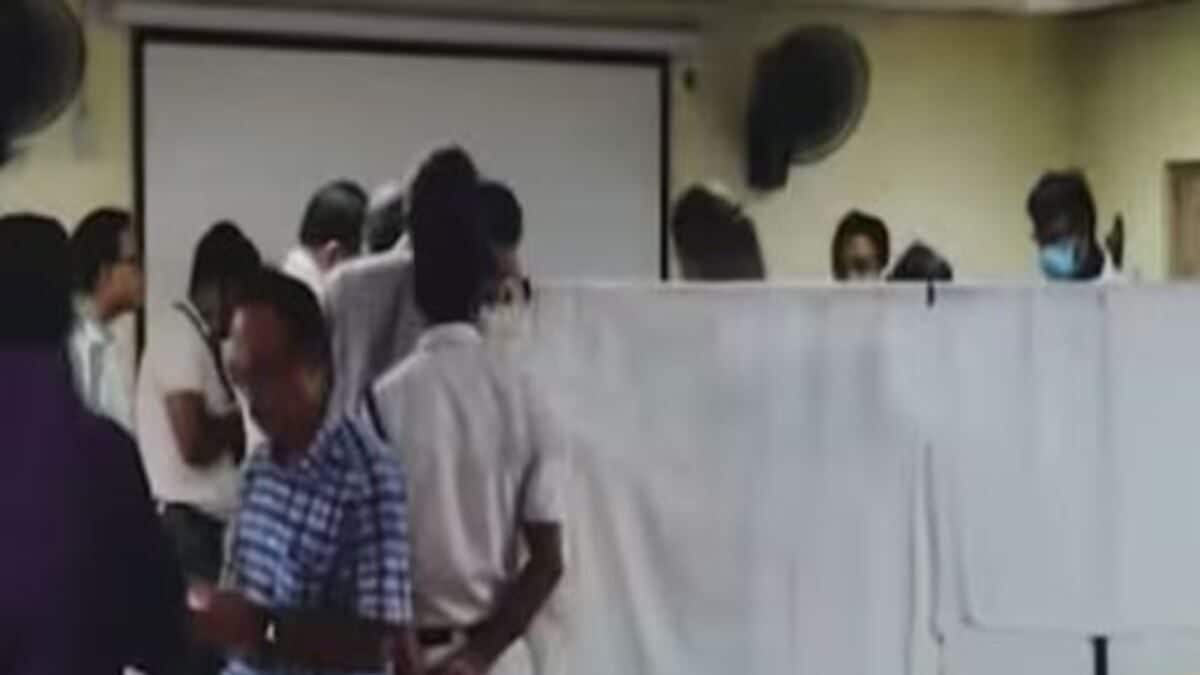The recent tragic incident at RG Kar Medical College and Hospital in Kolkata, where a trainee doctor was raped and murdered, has sparked outrage and protests. The case has taken a new turn with the revelation that a first-year Post Graduate Trainee (PGT) of Surgery at SSKM Hospital, identified as Dr. Avik De, was initially identified by the Kolkata Police as a fingerprint expert. This revelation has raised questions about the police investigation and Dr. De’s alleged involvement in the crime scene.
Dr. Avik De’s Suspension from TMCP
Following allegations surrounding Dr. De’s presence at the crime scene, the West Bengal Trinamool Chhatra Parishad (TMCP) has suspended him from the organization. In a press release, the TMCP stated that Dr. De has been suspended with immediate effect until the ongoing investigation into the incident is completed. This action suggests that the TMCP is taking the allegations against Dr. De seriously and acknowledges the need for a thorough investigation.
Misleading Statements by Police
The West Bengal state branch of the Indian Medical Association (IMA) has expressed concern over the police identifying Dr. De as a fingerprint expert. The IMA highlighted the fact that Dr. De is a first-year PGT in the Surgery department at SSKM Hospital and has no expertise in forensics or fingerprint analysis. This statement casts doubt on the accuracy of the police’s initial investigation and raises questions about the competence of the investigators involved.
Questions Surrounding Dr. De’s Role
The police identifying Dr. De as a fingerprint expert has raised several concerns.
- Lack of expertise: As a trainee doctor, Dr. De lacks any training or certification in forensic science or fingerprint analysis. The police’s identification of him as an expert raises serious questions about their professionalism and investigative skills.
- Misinterpretation of events: Dr. De’s presence at the crime scene could have been misinterpreted by the police as him being an expert, potentially leading to erroneous assumptions and inaccurate reporting.
- Potential bias in the investigation: Identifying Dr. De as an expert, despite lacking the necessary qualifications, may suggest a potential bias or agenda on the part of the police, especially since he is a student at a government-run medical institution.
The Need for Transparency and Accountability
The ongoing investigation into the murder of the trainee doctor should be conducted with utmost transparency and accountability. The involvement of Dr. De in the incident needs to be carefully investigated, and any allegations against him should be thoroughly examined. The Kolkata Police should be held accountable for any inaccurate information or misrepresentations in their investigation.
Public Scrutiny and Impact on Investigation
The public scrutiny surrounding Dr. De’s alleged involvement has significantly impacted the case. Social media platforms are rife with speculation and misinformation, which may influence the investigation and potential outcome of the case. The need for a neutral and fair investigation is crucial to ensure justice for the victim and prevent any further miscarriages of justice.
Impact on Medical Professionals and the Justice System
This case highlights the vulnerability of medical professionals and the importance of protecting their rights. The misidentification of Dr. De as an expert by the police highlights the need for stringent procedures and verification of credentials within the police force. This incident raises concerns about the credibility of the justice system, particularly in handling sensitive cases involving medical professionals.
Key Takeaways
This case has raised several critical issues surrounding the investigation process, police conduct, and the public perception of justice. Some of the key takeaways are:
- The importance of accurate information: Providing correct and accurate information to the public is essential for maintaining public trust and ensuring a fair investigation. Misinformation can hinder justice and create unnecessary confusion and speculation.
- Need for a robust system of verification: A reliable system for verifying credentials and expertise is vital to prevent misrepresentation and ensure accountability in investigations.
- Strengthening legal framework for the protection of medical professionals: This case underscores the need for a legal framework that adequately safeguards the rights and interests of medical professionals.
The case of Dr. Avik De and the ongoing investigation into the murder of the trainee doctor are complex and require careful examination and scrutiny. Transparency, accountability, and a fair process are paramount to achieving justice for the victim and ensuring that the guilty parties are brought to book. This incident serves as a reminder of the crucial role of responsible investigation and reporting in maintaining trust in the justice system and upholding the rule of law.




